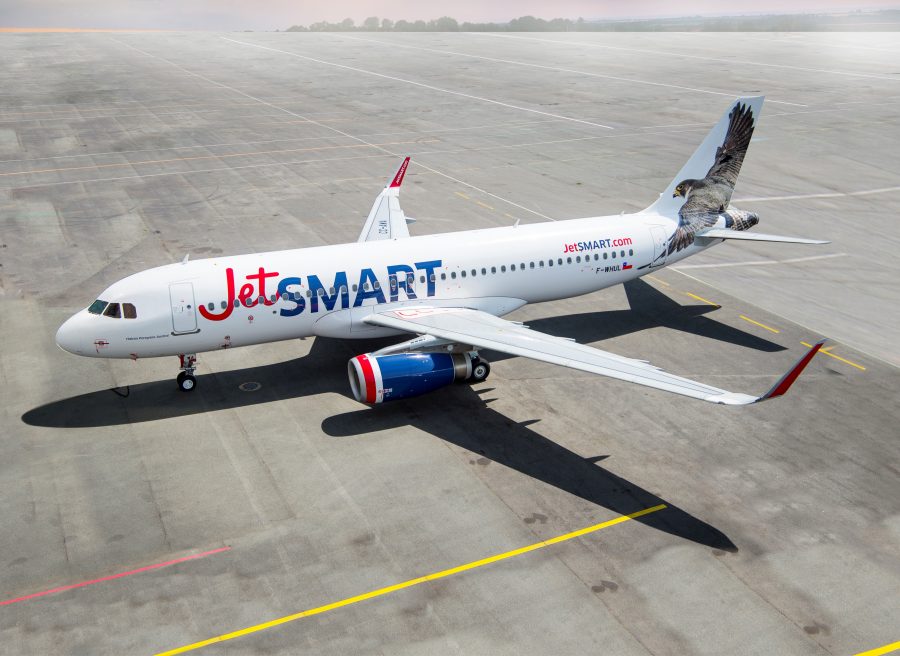
SAS Sets Next Steps for SkyTeam Cutover
Following the initial report about Scandinavian SAS being nearly taken over by Air France-KLM, the subsequent implication was that the…

A JetSmart Argentina Airbus A320 aircraft. (Photo: JetSmart)
In an important week for the Argentinian aviation market, the newest actors have finally come to play in the newly deregulated market. While Norwegian Air Argentina started its domestic sales and set its operation launch to Oct. 16, Indigo Partners’ southern venture JetSmart has started offering international routes between Chile and Argentina.
In an event held in Buenos Aires, JetSmart CEO Estuardo Ortiz and Indigo Partners Managing Partner William Franke announced the new routes that will connect Mendoza, Cordoba and Buenos Aires to Chilean capital Santiago and La Serena, with prices that will be around $50 to $80 dollars round trip.
The operations model of JetSmart is quite simple. As an ultra-low-cost carrier, the no-frills policy is strict and all ancillary services will be added to the basic fare. The aircraft of choice is no other than the Airbus A320, in a market that it is almost exclusively served by the Boeing 737 family of aircraft. The A320 is the aircraft of choice for Indigo Partners, parent company of low-cost airlines FrontierAirlines and IndiGo.
Within the 150+ seat range, LATAM is the only other operator using the A320. What will make JetSmart aircraft remarkable is that a yet unspecified number of the 76 A320s is set to receive is set to receive that are heading to JetSmart – from the record order signed in 2017 of 430 – will arrive right from Airbus factory.
“Our operating model will mean lower airfares for all Argentines and will encourage non-travelers to travel and frequent travelers to travel more often. Our goal is for JetSmart to offer air transportation throughout South America and we are excited about the opportunity to invest in Argentina as one of our initial markets. We believe that this is the beginning of what will become a much larger operation in Argentina, “said William A. Franke, Managing Partner of Indigo Partners LLC.
Since a little kid, Pablo set his passions in order: aviation, soccer, and everything else. He has traveled to various destinations throughout South America, Asia, and Europe. Technology and systems expert, occasional spotter, not-so-dynamic midfielder, blogger, husband, father of three cats; he believes that Latin America's aviation industry past, present, and future offer a lot of stories to be told.
Receive a daily dose of the airline industry's top stories along with market insights right in your inbox.

Following the initial report about Scandinavian SAS being nearly taken over by Air France-KLM, the subsequent implication was that the…

Mexico's state-owned airline, Mexicana, is facing a major legal hurdle. On Wednesday, a Texas-based company, SAT Aero Holdings, filed a…

Over the weekend, numerous reports surfaced about United's ability (or lack thereof) to certify new pilots, aircraft, and launch routes…



